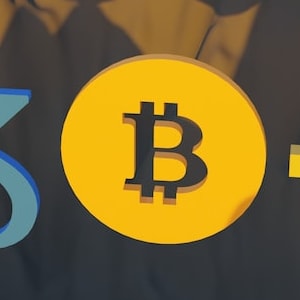bang for the buck: Idiom Meaning and Origin
What does ‘bang for the buck’ mean?
The idiom "bang for the buck" means getting good value or results from something, often in terms of money spent. It implies that you are getting a lot of impact or benefit relative to the amount of cost or effort invested.

Idiom Explorer
The idiom "money's worth" means receiving value or benefit equal to the amount of money paid for something.
The idiom "good value" refers to something that is worth the money spent on it, providing a high quality or benefit relative to its cost.
The idiom "earn one's keep" means to work and contribute enough to cover one's own expenses or be useful and deserving of the resources one receives. It conveys the idea of being self-supporting or proving one's worth through hard work and productivity.
The idiom "dime's worth" implies a small or insignificant value, often used to express the lack of significance or impact of something.
An idiom meaning to take shortcuts or do something in a faster or easier way, often sacrificing quality or thoroughness. It is used to describe a situation where someone tries to save time, money, or effort by finding an easier or quicker way to achieve a goal.
The idiom "cost the earth" means that something is very expensive or costs a lot of money. This phrase is often used to emphasize how expensive something is, comparing it to the high value of the earth itself.
The idiom "chump-change" refers to a small or insignificant amount of money or anything of little value. It implies that the amount mentioned is not worth much and is easily dismissed or disregarded.
The idiom "cheap thrill" refers to a brief moment of excitement or enjoyment that is easily attained but lacks depth or lasting value. It implies a low-cost or easily accessible source of temporary pleasure, often highlighting a lack of substance or significance.
Explosive Value
"Bang for the buck" is a commonly used expression in the English language that refers to getting value or benefit from an expenditure or investment. It originated in the United States during the mid-20th century.
The phrase implies that one wants to receive a significant impact or outcome in relation to the amount of money or effort put into something. It suggests that individuals or organizations are looking for a high return on their investment, seeking the best value for their resources.
At its core, the idiom conveys the notion of efficiency and effectiveness in allocating resources. It suggests the desire to get the most benefit or impact for the least amount of cost or effort. It can be applied to various contexts, including business, consumerism, and personal decision-making.
The idiom "bang for the buck" can be related to other idioms such as "good value" and "money's worth." These idioms also express the desire for maximum benefit or value from an expenditure. They emphasize the importance of getting the best return on investment and making wise choices.
Another related idiom is "bang up," which means to damage or harm something. In the context of "bang for the buck," this idiom can symbolize the potential risks or negative consequences of not getting the desired value or benefit from an investment.
On the other hand, the idiom "bang out" means to produce or create something quickly and efficiently. In relation to "bang for the buck," this idiom highlights the importance of achieving desired outcomes or results without wasting resources or effort.
These idioms all share a common thread of seeking maximum benefit or value from a given input or investment. They emphasize the need for efficiency, effectiveness, and wise decision-making. By understanding and applying these idioms, individuals and organizations can strive for optimal outcomes and make informed choices.
The expression "bang for the buck" has become ingrained in American vernacular and is commonly used in everyday conversations and writing. It has also seeped into popular culture, often being referenced in movies, books, and articles. Its familiarity and straightforward nature make it highly accessible and relatable to a wide range of English speakers.
It is worth noting that while the idiom originated in the United States, it has since gained international recognition and usage. It has become a part of the global lexicon, particularly in countries where English is widely spoken or understood.
Despite its prevalence, the exact origin of the idiom "bang for the buck" is unclear. There are no definitive records or references that pinpoint its creation. Instead, the phrase seems to have gradually evolved and gained popularity over time.
The idiom "bang for the buck" captures the desire for value and efficiency in resource allocation. It reflects the widespread preference for getting the most benefit or impact for the least amount of cost or effort. Although its precise origins remain unknown, it has become a widely recognized and used expression in the English language. As language continues to evolve, it is intriguing to consider how idioms like "bang for the buck" will persist and adapt in the future.
Example usage
Examples of how the idiom "bang for the buck" can be used in a sentence:
- 1. The new smartphone offers great bang for the buck with its powerful features and affordable price.
- 2. The company's marketing campaign generated a lot of bang for the buck, resulting in a significant increase in sales.
- 3. Investing in energy-efficient appliances provides long-term bang for the buck by reducing energy costs and conserving resources.
More "Finance" idioms



